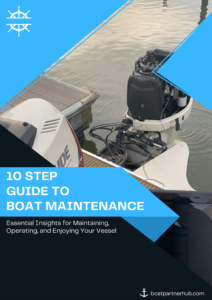Blog
What Navigation Rules Should I Follow While Boating?

Navigating Safely: Essential Navigation Rules for Boaters to Follow
Boating can be an exhilarating and enjoyable experience, but it also comes with the responsibility of adhering to navigation rules to ensure the safety of everyone on the water. Just like the rules of the road for drivers, there are specific navigation rules that boaters must follow to avoid collisions and maintain order on busy waterways. In this article, we will explore the essential navigation rules that every boater should be familiar with to navigate with confidence and maintain a safe environment on the water.
1. Maintain a Proper Lookout
A fundamental navigation rule is to always maintain a proper lookout while operating a boat. This means continuously scanning the water and surroundings to be aware of other vessels, objects, and potential hazards. Keep in mind that some boats may be harder to spot, such as kayaks and paddleboards, so extra vigilance is essential.
2. Understand Right of Way
Just like on the road, boats have a right of way when encountering each other on the water. Understanding right-of-way rules helps prevent confusion and potential collisions. For example, a power-driven vessel must give way to a sailing vessel, and vessels not under command or restricted in their ability to maneuver have right of way over others.
3. Obey Speed Limits
Different waterways may have speed limits and no-wake zones, especially in areas near shorelines, marinas, and swimming areas. Always obey the speed limits to prevent accidents and minimize the impact of your boat’s wake on other vessels and shoreline properties.
4. Keep to the Right
In general, boaters should keep to the right side of the waterway, just like driving on the right side of the road. This “keep right” rule helps ensure smooth and organized traffic flow on busy water bodies.
5. Sound Signals
Boats use sound signals as a means of communication on the water. For example, a short blast on the horn or whistle indicates an intention to pass on the left, while two short blasts indicate passing on the right. Familiarize yourself with the standard sound signals to communicate effectively with other boaters.
6. Navigation Lights
Proper use of navigation lights is crucial, especially when boating at night or during times of restricted visibility. Display the appropriate navigation lights to indicate your vessel’s position, direction of travel, and size.
7. No Alcohol or Drug Use
Operating a boat under the influence of alcohol or drugs is not only dangerous but also illegal in most places. Impaired boating significantly increases the risk of accidents and endangers everyone on board and other boaters nearby.
8. Be Mindful of Restricted Areas
Pay attention to any marked restricted areas, such as swim zones, wildlife sanctuaries, or areas designated for specific activities. Respect these zones to protect wildlife and ensure the safety of swimmers and other recreational users.
9. Crossing Paths
When two boats are on a collision course, both operators should alter their course to the right to pass port to port, just like cars passing on the road. Avoid making unpredictable maneuvers that could lead to confusion or accidents.
10. Be Cautious in Narrow Channels
In narrow channels or areas with limited space to maneuver, exercise extra caution and reduce speed. Yield to larger vessels and be patient when navigating through these tight spaces.
Conclusion
Following navigation rules while boating is not only a legal requirement but also a critical aspect of boating safety. Being aware of right of way, maintaining a proper lookout, and understanding sound signals can prevent accidents and ensure a smooth and enjoyable boating experience for everyone. Always stay alert, be considerate of other boaters, and prioritize safety to make the most of your time on the water.
FAQs
- Do navigation rules apply to all types of boats? Yes, navigation rules apply to all boats, whether they are motorized vessels, sailboats, kayaks, or any other type of watercraft.
- Can I use my boat’s horn for sound signals? Yes, boats are required to have a horn or whistle that can produce the appropriate sound signals.
- What should I do if another boat is not following navigation rules? Avoid confrontation and take appropriate evasive action to avoid a potential collision. Report any dangerous or reckless behavior to the local authorities if necessary.
- Are navigation lights required during the day? Navigation lights are generally not required during daylight hours unless there is limited visibility due to fog or other weather conditions.
- Is it mandatory to take a boating course to understand navigation rules? While not always mandatory, taking a boating safety course can help you better understand navigation rules and other essential boating practices for a safer and more enjoyable experience.


